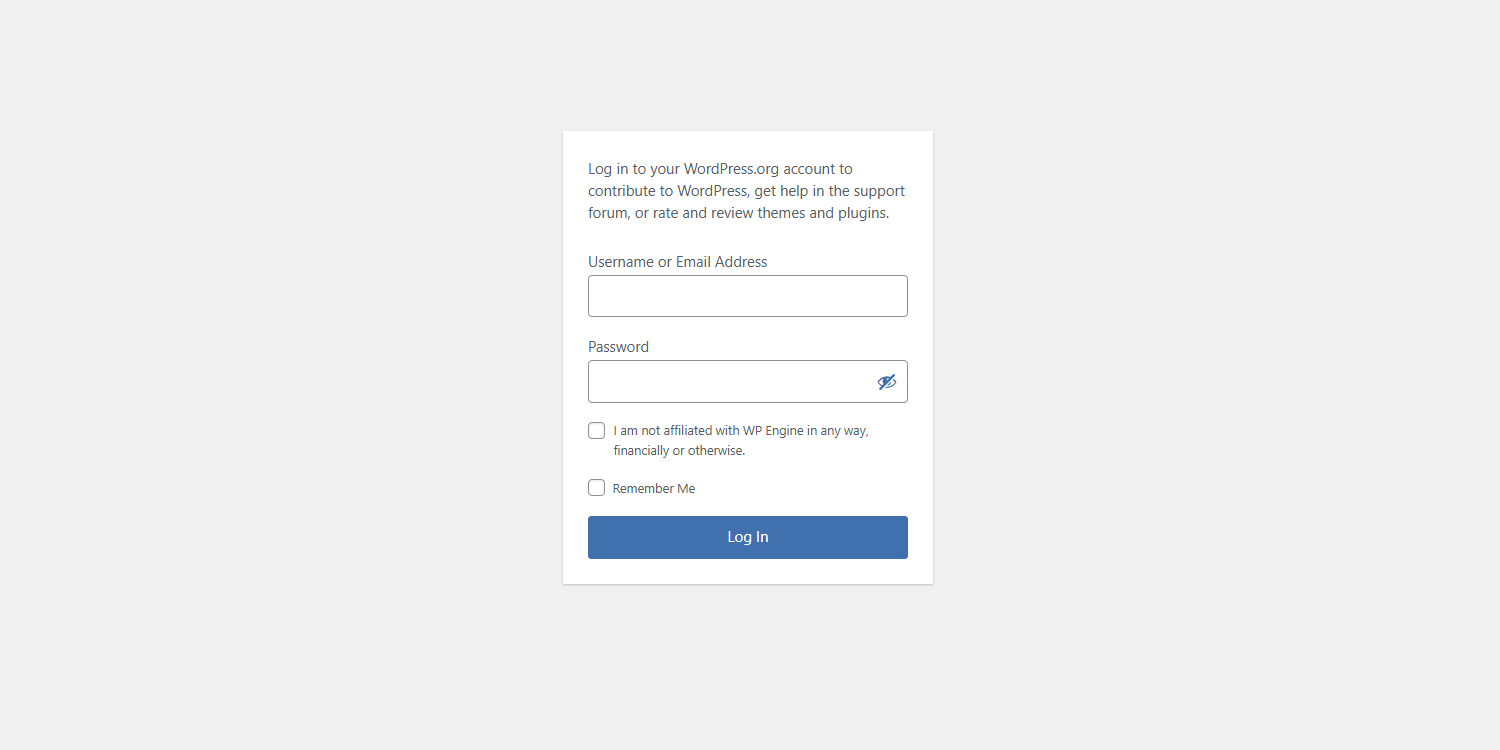
You may be aware of a bizarre feud between WordPress co-creator Matt Mullenweg and website hosting platform WP Engine. If not, you’ll find a recap below.
But things took a very silly turn today when the WordPress login acquired a new checkbox requiring users to declare that they are not in any way connected with WP Engine.
Update: On 10th December, a judge granted WP Engine a preliminary injunction, requiring access to be restored, and the login box to be removed.
The WordPress vs WP Engine battle
WordPress and WP Engine (WPE) have long been on poor terms. WPE hosts WordPress sites, and Mullenweg had long argued the company wasn’t giving enough back to the WP community.
However, things blew up bigtime when Automattic started demanding WPE pay millions of dollars for a trademark license. WPE responded by taking Automattic to court, arguing that this was extortion.
Over the last two weeks, [WordPress] has been carrying out a scheme to ban WPE from the WordPress community unless it agreed to pay tens of millions of dollars to Automattic for a purported trademark license that WPE does not even need.
Defendants’ plan, which came without warning, gave WPE less than 48 hours to either agree to pay them off or face the consequences of being banned and publicly smeared. In that short time, Defendants sent ominous messages and photos designed to intimidate WPE into making an extortionate payout. When WPE did not capitulate, Defendants carried out their threats, unleashing a self-described ‘nuclear’ war against WPE.
Mullenweg did not take this well, banning WPE from WordPress.org.
Pending their legal claims and litigation against WordPress.org, WP Engine no longer has free access to WordPress.org’s resources […] Why should WordPress.org provide these services to WP Engine for free, given their attacks on us? WP Engine is free to offer their hacked up, bastardized simulacra of WordPress’s GPL code to their customers, and they can experience WordPress as WP Engine envisions it, with them getting all of the profits and providing all of the services.
Mullenweg’s own staff were not exactly behind him. When that became clear to him, he effectively told them to back him or get out. As CIO reports, a lot of them took the latter path.
Mullenweg decided to pay dissenters to go away, with what he described as “the most generous buy-out package possible”: $30,000 or six months’ salary, whichever was higher. There were two catches: staff had to decide by 1 p.m. Pacific Time on Oct. 3, and there would be no possibility of getting hired back by Automattic.
By the deadline, 159 staff — 8.4% of the company’s workforce — had accepted the offer to leave, including one person who had started just two days earlier.
New WordPress login requirement
As spotted by 404Media, a new checkbox has been added to the WordPress login.
WordPress.org users are forced to confirm they are not “affiliated with WP Engine in any way, financially or otherwise” before registering a new account or logging in […] Users who don’t check that box can’t log in or register a new account.
WPTavern reports that some high-profile WordPress contributors are currently locked out.
Several community members have reported being blocked from WordPress Slack including Javier Casares (Hosting Team Rep and also Lead for the WordPress Advanced Administration Handbook), Ryan McCue (WordPress committer, and co-lead on the WordPress REST API), Jono Alderson(technical SEO consultant), Alex Sirota (founder of NewPath Consulting) and Andrew Hutchings (Chief Contributions Officer at MariaDB Foundation).
9to5Mac’s Take
While Mullenweg may be right that the for-profit WPE could show WordPress more love, the fact is that WordPress made the code open-source on terms which permit commercial use.
Whatever the arguments, this is not the way to handle it. In particular, the new login box move has all the hallmarks of a childish temper tantrum. Leave WordPress users out of it, please.
FTC: We use income earning auto affiliate links. More.

 1 month ago
5
1 month ago
5








 English (US) ·
English (US) ·